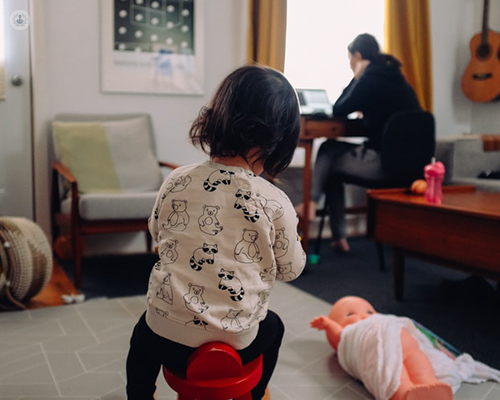COVID-19 and working from home: What are the positives?
Autore:During the start of the pandemic, everyone who usually works in an office suddenly found themselves having to work from home in order to avoid catching and/or spreading coronavirus and to stay safe under lockdown.
For many of us, rather surprisingly, working from home has left us happier and more efficient with our work tasks. We can avoid the stress of our daily commute, the distractions of the office politics, and even save money without buying countless cups of coffee. Could remote work change the way that offices function after the crisis?
Here, Top Doctors looks at the benefits that working from home may have on our mental wellbeing and whether the positives outnumber the negatives.

Is remote work a new idea?
Working remotely is nothing new, with some companies in the UK allowing their employees to do so a few days a week already. Thanks to the crisis, however, everyone now has to work from home but without a choice.
Employers have to ensure that their staff are safe during the pandemic as it is their duty of care. In some cases, non-essential staff are being furloughed in order to limit the risks that the company might otherwise face.
What are the benefits for our mental health with working from home?
Some of the benefits of working from home include:
An improvement to work-life balance
Commuting both to and from work is stressful and, of course, bad for the environment. Remote working removes the time spent on daily travel, which can usually take a big chunk out of our day. Imagine what we can do with those extra hours saved?...
We can sleep in a little longer / or exercise before work
Not having to commute in the morning means that we get an extra hour in bed. Sleep itself is important to our overall health. Between 7-9 hours rest at night has been known to reduce stress, brain fog, inflammation, elevate our mood, and may even aid in weight loss.
Some people might be motivated to use that extra time to go for a run or walk before sitting down at their computer screen by 9 am. Needless to say, exercise has many benefits, including improving our mental health and mood. It can keep us thinking, learning and gives us the energy we need to be more productive during our day.
Employee motivation will be higher
As long as employees complete their daily tasks whilst working from home, perhaps they will be motivated to prove that they can be trusted when left to their own devices.
Less sickness
Apart from COVID-19, working from home can keep employees safe from catching a cold or the flu from infected colleagues.
Financial savings both for staff and employers
It’s surprising how much we spend on travelling to work (on petrol or transport tickets), buying coffees, the odd pastry during our break, or even lunch in a restaurant instead of preparing our own food at home.
Ultimately, saving money each week can be put towards holiday-savings (for when we can finally travel again) or towards a treat at the end of the month, which gives us something to look forward to.
Employers can also enjoy financial savings on overheads because of a reduction in office space or electricity usage.

What are the downsides to remote working?
Currently, working from home may not be as easy for parents, particularly whilst schools are closed during the crisis. It can be difficult trying to have a meeting via Zoom from your kitchen table with your children running riot in the background.
Remote working can increase the burden on working mothers who don’t have any help. On the other hand, however, some people might appreciate spending more time with their kids.
Some of us may also actually miss seeing our colleagues who we also consider to be our friends. Less face-to-face social interaction with coworkers or even our clients might leave us feeling a little bored or impersonal.
What can we conclude about working from home?
When the coronavirus crisis finally passes somewhat and we are required to go back to the office, it is likely that staff will be looking for a happy medium.
It would be beneficial for employees’ mental wellbeing to have the best of both worlds, splitting time between remote work a few days a week to also showing up at the office on the other days. The new term is being coined as 'flexi-working.'
The hope for most people is that the crisis has shown business owners that workers can be trusted to do their jobs without constant supervision. Offering that flexibility can help keep employees motivated and happy with their job.
Working from home may have left you feeling a little less stressed, but you may have worries about other areas of your life. Book an appointment with one of our psychologists now and have a therapy session using our video conference tool e-Consultation.


